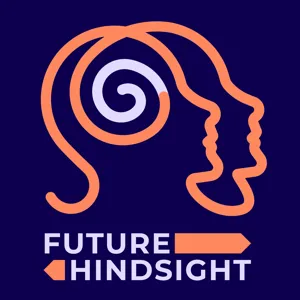Podcast Summary
Marijuana use can have negative health effects: Frequent marijuana use can lead to hyperemesis, increased anxiety, paranoia, and even psychotic episodes, especially in young people with developing brains
While more than 20 states have legalized recreational marijuana use and decriminalization is on the rise, chronic use of cannabis can have negative health implications. Doctor Charles Michael White, professor and chair of the department of pharmacy practice at Yukon's School of Pharmacy, warns that frequent use can lead to hyperemesis, causing increased vomiting, and even hospitalization. Additionally, cannabis use can increase anxiety and paranoia, and in young people whose brains are still developing, it can lead to psychotic episodes. It's important for individuals to be aware of these potential risks as marijuana use becomes more commonplace.
Cannabis use in young people and while driving: Risks and concerns: Cannabis use can harm young people's developing brains, potentially leading to psychosis. Driving under its influence increases accident risks, and THC-dominant strains can increase anxiety and psychosis.
The use of cannabis, particularly in young people and while driving, can have significant risks. The developing brain of young people may be affected permanently by chronic cannabis use, potentially leading to psychosis. Additionally, driving under the influence of cannabis can increase the risk of automobile accidents and traffic fatalities. Unlike alcohol, there is no reliable way to measure the level of impairment caused by cannabis use. THC and CBD are the two main components of cannabis. THC is the psychoactive compound that gets you high, while CBD does not. Historically, THC and CBD have been present in roughly equal amounts. However, in recent years, there has been a trend towards producing cannabis products with high THC and low CBD concentrations. This can increase the risk of anxiety, paranoia, and even psychosis in some users.
Impact of Cannabis on Fertility and Addiction: Cannabis use, particularly high THC intake without CBD, can affect fertility in men, causing decreased semen production, poorer sperm motility, and abnormal sperm morphology. Prolonged use can lead to addiction, although withdrawal symptoms may not be as severe as opioids or alcohol.
While past experiences with cannabis use may not have shown severe negative effects, the unbalanced intake of THC without sufficient CBD can lead to significantly different responses. There are concerns regarding the impact of cannabis on fertility, particularly in men, with studies indicating decreased semen production, poorer sperm motility, and abnormal sperm morphology. However, large-scale studies on overall fertility reductions are lacking. Cannabis may not have the same withdrawal symptoms as opioids or alcohol, but prolonged use and high doses can result in downregulation, making it challenging for some individuals to quit.
Cannabis withdrawal effects less severe than other substances: Limited research on cannabis as a Schedule 1 product hampers our understanding of its effects, but CBD can treat seizure disorders and stimulate appetite
While the withdrawal effects of cannabis can be challenging for some individuals, the experience is generally less severe compared to withdrawing from substances like alcohol or opioids. However, the limited research on cannabis as a Schedule 1 product has hindered our understanding of its effects, particularly for those using it for recreational purposes without specific disorders. The data we do have suggests that cannabis components like CBD can be effective in treating seizure disorders and stimulating appetite in individuals with wasting syndromes. Overall, while there is progress in research, more clinical trials are needed to fully understand the implications of cannabis use in various contexts.
Decriminalization of THC products leaves safety concerns unanswered: Decriminalization doesn't ensure safety or provide reliable methods to measure THC impairment. Research is needed to identify effects and develop accurate measurement methods.
While some states have decriminalized THC products, there are still many unanswered questions regarding their safety and impact on individuals. Decriminalization does not guarantee safety or provide a reliable way to determine impairment. Research is needed to identify the effects of THC use and develop methods to measure impairment accurately. The federal government and states could invest in research to answer these questions and ensure the safety of THC products. Additionally, consumers should be aware of the potential risks and benefits of different THC products and consider seeking professional advice to make informed choices.
Discussing Importance of Medication Adherence and Strategies for Improvement: Non-adherence to medications can lead to serious health consequences and increased healthcare costs. Strategies to improve adherence include simplifying regimens, providing education and support, and addressing cost and side effects.
Dr. Charles Michael White, a pharmacy expert from Yukon's School of Pharmacy, discussed the importance of medication adherence and its impact on patient health during this episode of MorningWire. He emphasized that non-adherence can lead to serious health consequences and increased healthcare costs. He also suggested strategies for improving medication adherence, such as simplifying medication regimens, providing education and support, and addressing common barriers like cost and side effects. Overall, Dr. White's message underscores the importance of healthcare professionals and patients working together to ensure effective and safe use of medications.






